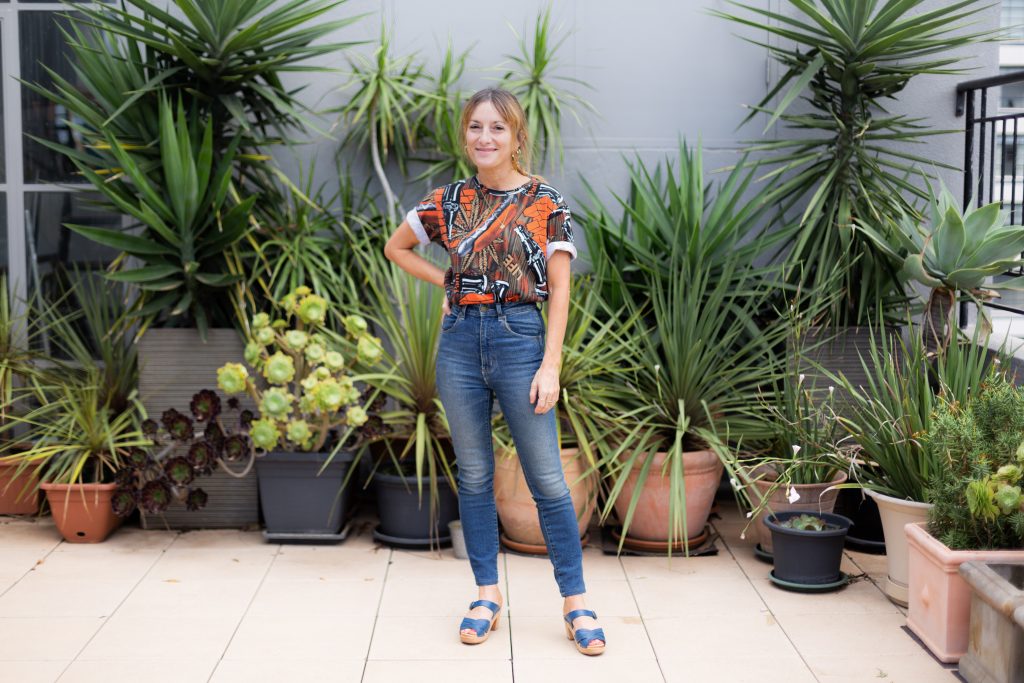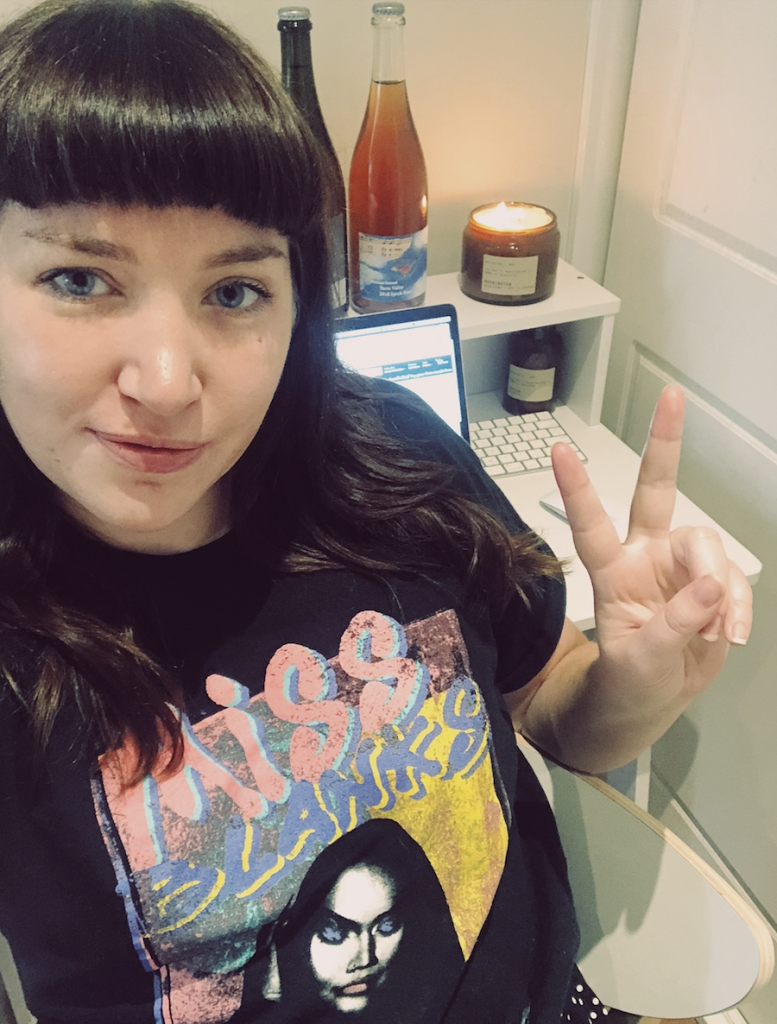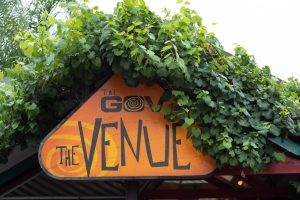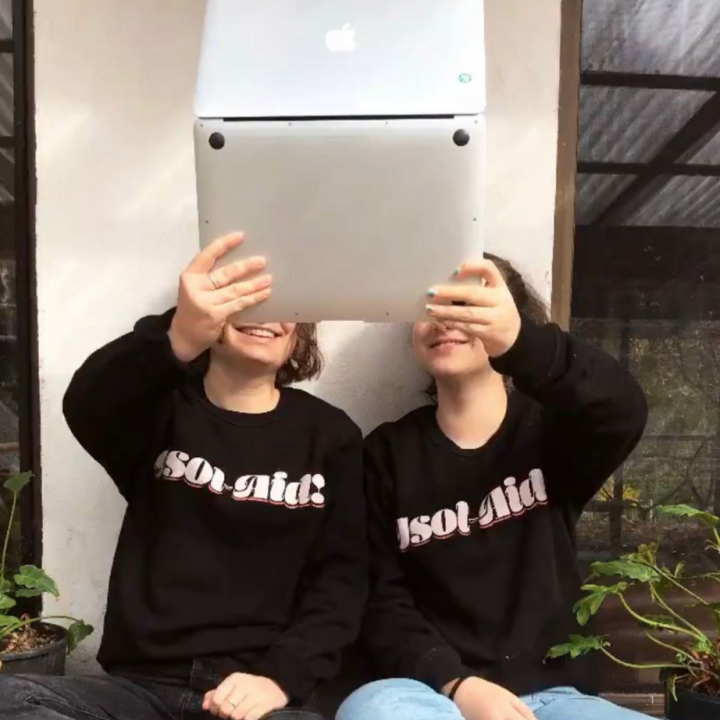We spoke to three key figures based across Melbourne, Sydney and Adelaide and asked them how COVID-19 has impacted their business’, how their day-to-day has changed and what they considered their top concerns were moving forward.
Emily Ulman is the Programmer at Isol-Aid Festival. Based in Melbourne.

We are incredibly impressed by Isol-Aid, such an amazing initiative. Tell us about how you came up with the concept.
Isol-Aid was born out of a desperate situation. A whole industry was closed down. Musicians, of course, but also bookers, managers, booking agents, sound and lighting techs, tour managers, and on and on. My friend Merpire, was particularly devastated that her upcoming single launch tour had to be cancelled. We wondered about an Instagram festival where musicians could showcase their work to existing fans and hopefully new ones. We would also encourage donations to Support Act, the only Australian charity that provides crisis relief services to artists, crew and music workers as a result of ill health, injury or mental health problem, and more specifically directly to a fundraiser set up by Angie McMahon and her manager Charlotte Abroms and her engineer, Jono Steer.
It was originally intended to be a one-off weekend, but the response was so overwhelmingly positive, (from musicians, their teams, and fans), that I felt compelled to keep it going and establish it as an ongoing festival. And then it took on a life of its own. It became an opportunity for musicians to retain their connection to their fans, to gain new followers, to showcase their work and advertise their merch and any new releases, and to have an excuse to rehearse and dress up themselves and their spaces. It also became an opportunity to create community, and in doing so to promote mental health and staying positive, which is something I hadn’t predicted. The fans chat constantly in the comment section to the musicians but also with each other, joking, flirting, welcoming viewers from other parts of the world, chatting about the weather wherever they are and what they’re drinking or eating. Importantly, it’s also offered access to live music for otherwise isolated and marginalised people with physical, psychological and geographical barriers.
Who is on the Isol-Aid team helping you out?
The team is actually just me. I run the whole show from my bedroom and lounge room. Me and D’Angelo, my cat, the office manager. But I work closely with the amazingly talented Sebi White, the designer, whose work has been Isol-Aid’s calling card. And I’ve also teamed up with the inimitable Johanna Greenway from The Boss Agency and Alex Paioff and the Made in the Pile team, who are geniuses at what they do. Also, I’ve been in the music industry a long time and I have the most extraordinary group of friends and colleagues who are incredibly generous with their time, advice and encouragement. I’ve reached out to record labels and shops and music programmers and bookers and managers, all of whom have provided invaluable assistance.
With the very impressive list of performances you’ve had on the line-up, which artists have stood out for you?
This may sound like a cop-out but every single act has stood out for me in some way. Honestly, I’ve watched 492 artists over the last 8 weekends of Isol-Aid and each one has something special going on. But one of the best things about Isol-Aid for me has been discovering new music and musicians. From the submissions to the recommendations, and being able to see them perform so immediately, it’s been extraordinarily special.
How has COVID-19 impacted your business / sector of the industry?
It’s devastated it. I am a contractor (which as an aside felt like a scary and uncertain path to choose at the time), but now I have nothing secure. I was the programmer of the Brunswick Music Festival (which had to be cancelled halfway through), Small Time TV in Brunswick, and I had various other contracts throughout the year. Right now there is zero certainty for me going forward. I have been working on Isol-Aid for free, (and in fact paying its expenses out of my own pocket), and right now I have no idea what my professional future will look like.
How has your day-to-day changed?
In some ways, my work life hasn’t changed much. I’m still working in the industry I love and dealing with the most generous and talented people in the world, and I’ve mostly worked from home anyway. The difference is that I’m now working at least 16-hour days, seven days a week, with no salary. Isol-Aid having a weekly turnaround cycle has added a lot of strain that I wouldn’t normally be under. Programming a festival of 50 to 70 acts every week is a huge undertaking. But at the same time, the sense of pride and privilege I feel to being able to work on something that is providing so much good is humbling and immensely rewarding.
What are your predictions for the next year? What will be the industry’s top concerns moving forward?
I think ours is a very resilient community and people are excited to attend live music venues as soon as they can. Pubs and clubs have been hit hard of course; some of them may not survive, and social distancing regulations are going to be in force for some time to come, but I think there will be an outpouring of support for our local venues. I think people are going to be a bit nervous to begin with, and it may all take time. Though of course a vaccine may come along and we might all be rubbing shoulders in the mosh pit sooner than we think.
What do you think the Australian industry is doing well to support industry/artists impacted?
My initial reaction is to say not enough. But the truth is, this is so wildly unprecedented, and people are sort of flailing mostly, unsure how to proceed or how best to survive in order to revive our community. The dissemination of information is one thing I do think is being done well. Sounds Australia, Australia Council, The VMDO, Music Victoria, APRA AMCOS and other orgs and industry bodies are doing a wonderful job in keeping us informed and making themselves available for any questions or concerns. As are the incredibly hardworking people at Support Act. A huge, heartfelt and special shout out to all of the incredible hardworking people at Support Act.
How can the industry improve their support?
More grants is the obvious one. Government support is everything and our survival really hinges upon the response from state and federal decisions. Many musicians and music workers not being eligible for Jobseeker or Keeper is really appalling, and unforgivable really. Emilie Zoe Baker tweeted “If you don’t think supporting art is important in this time try sitting in your self isolation without it”. And that is really the beginning and end of it for me.
How has COVID-19 impacted your personal life?
Entirely. I live alone and I’m normally incredibly social and active. I have a wide and wonderful social network that I miss terribly, and I am an avid (read addict) gig attendee, and I miss my live music/venue crew too. These days I chat and meet virtually with friends when there’s time, and in some ways we’re in closer touch than ever, but nothing beats an irl hang. But the biggest impact is the physical. I miss the hugs and walking arm in arm and smooshing my friends.
What music is getting you through lockdown? Any go-to playlists?
All the Isol-Aid playlists are on Spotify so I’m loving listening to them. Plus all the festival submissions. I love discovering new artists and I am listening to countless at the moment.
How are you looking after your mental health at the moment?
This is definitely something I don’t tend to as closely as I would like to. My main non-negotiable things regardless of how busy I am are eating well, drinking loads of water, and making sure my place is clean and looks lovely and inviting/inspiring. Clean sheets, candles, oil burner, clean surfaces, clothes put away, no clutter. These things help me focus but also motivate me and keep me calm. My cat, D’Angelo of course loves that I’m house-bound with him and he’s a very comforting shadow.
Can you recommend any good practices that have been helpful for you?
Keeping in constant contact with friends and family. That’s vital. Meditating, even if it’s only a couple of minutes. I’m also trying to journal, something I haven’t done diligently for years, to try and record this time as closely as I can but it also helps me make sense of my thoughts and untangle my feelings.
What’s the first thing you plan to do once lockdown ends?
First, I’m going to sleep for 24 hours. Then, while you’re all going back to work I’m going to catch up on my baking, tv series, books, podcasts and jigsaw puzzles, so I can see what I missed out on.
Rebecca Young is the Director at Collective Artists. Based in Sydney.

How has COVID-19 impacted your business / sector of the industry?
As booking agency that works entirely in the space of live music, we have been massively impacted by COVID-19. In the space of a week we had hundreds of shows cancelled or postponed which resulted in a huge loss of income for the business and our clients.
In addition to agencies, other businesses such as venues, ticketing companies, promoters, sound engineers, tour managers and more within the live sector have been similarly affected.
How has your day-to-day changed?
Massively! Previously I worked in an office with 30 other people, now I’m working from home with my housemate and my cat. The volume of emails and calls regarding new bookings has certainly slowed down. Whilst we wait for answers about restrictions easing, it’s really hard for artists and their teams to plan for the future, which means I am currently juggling multiple touring options with no idea which dates will go ahead. On the positive side, being able to cook excellent WFH lunches and doing an online yoga class in the middle of the working day has certainly been rewarding.
What are your predictions for the next year? What will be the industry’s top concerns moving forward?
I think we’re all in the same boat in that none of us know what the future holds when it comes to easing the restrictions placed on live music. The main concern for agents right now is summer festivals and touring, and whether or not they will actually happen. Some festivals are currently booking lineups over the NYE and summer period hoping they’ll go ahead, so we’re all navigating new terms for deposits and exclusivity clauses for events that will potentially have to cancel or reschedule! I think the next 12-18 months will be a bit of a mess, but we’ll get through it. I think we’re also all hoping that there will be enough support from music fans once shows do start again – we realise so many people will have had their income significantly affected by the pandemic which could seriously affect ticket buying patterns.
How has COVID-19 impacted your personal life?
I am in a very lucky and privileged position where I can still pay myself a salary, so after the initial shock and sadness around cancelling all the shows I had worked on I decided to try to remain as positive as possible during this period. I am honestly really enjoying having a forced break and some down time – which I think many people in this industry are also feeling, after years of being constantly busy and burnt out. Whilst I am really missing going out, seeing shows, catching up with friends etc I am thoroughly enjoying having more time to exercise, cook, read and rest without feeling guilty like I do every time I go on holiday and the world continues around me. I haven’t made sourdough yet, but my mum has taught me how to knit, so that’s my iso accomplishment!
Staying connected has been crucial in this time, many artists are streaming more intimate live performances from home. What performances have stood out for you?
It has been so great to see so many streaming events pop up! But my personal favourite has been the incredible Isol-Aid festival, running every weekend and raising huge amounts for Support Act. Over half our roster has now performed on the festival so far, but last week we were lucky enough to be able to curate a small section of the lineup which was really fun! My favourite part of Isol-Aid has been watching other musicians, friends and industry colleagues all connect over the chat section whist people are performing – it’s almost like being at a gig!
What music is getting you through lockdown? Any go-to playlists?
I have been enjoying the Sub Pop Takeover playlists, Rolling Blackouts CF did one recently and their current playlist is curated by Washed Out! I am also listening to a lot of cooking podcasts. Samin Nosrat’s voice is very uplifting so I highly recommend her podcast Home Cooking.
How are you looking after your mental health at the moment? Can you recommend any good practices that have been helpful for you?
I have been lucky to stay with my parents on the NSW north coast occasionally during this time, and they live close to a beach (which is still open). Time in nature honestly cures everything! I am also joining regular Zoom classes with Richard Moffat (programmer of Groovin the Moo) who is teaching his ‘Not-Doing Practice’ daily, focusing on Qi Gong. It has been really incredible! I am cooking a lot which is basically therapy for me. I have been connecting with friends and other industry colleagues to share our concerns during this time – but I have also tried to limit the amount of calls and screen time as it can be a little overwhelming having the same old ‘holy shit corona is crazy’ conversation over and over.
What’s the first thing you plan to do once lockdown ends?
Hug all my friends and hopefully have a big old rowdy night out at the Lansdowne!
Melissa Tonkin is the Band Booker at Governor Hindmarsh Hotel (The Gov). Based in Adelaide.

How has COVID-19 impacted your business / sector of the industry?
As an 800 capacity music venue and hotel, our business was closed down overnight when Covid- 19 restrictions were put in place. So far we have rescheduled /cancelled around 105 shows in our venue to dates later in the year and in to 2021. Our front bar stage which holds 100 people and usually has community music events 7 nights a week has had everything cancelled. The first few weeks of restrictions were a very busy time. There was so much uncertainty, so along with agents and bands working out new dates, we had customers calling us about the rescheduling of pre purchased tickets.
How has your day-to-day changed?
As the band booker, my day to day work is still very much the same though I now work from home. The big difference is as we are no longer having live shows, the buzz and energy of having bands in our venue is gone.
What are your predictions for the next year? What will be the industry’s top concerns moving forward?
The difficulty going forward is the uncertainty of when restrictions will be lifted for music venues and how many people will we be able to have in our room. Interstate acts have rescheduled to later in the year, but a major part of our business is the international acts, and they may not be touring for twelve months, though we don’t know for sure when bands will be able to tour again. That said, we have so much talent here is SA, so many great local musicians and bands that we already work with at The Gov, and as soon as we are safely able to, hope to introduce some very small capacity seated shows by local musos with social distancing in place.
What do you think the Australian industry is doing well to support industry/artists impacted?
Music Venues haven’t received any government funding yet and with no income, the biggest concern is that we won’t withstand the closures and many businesses will go under. Where will musicians play if there are no venues left when this is all over? Whilst there is no income, the bills still keep coming in, rates, utilities, insurances and other financial commitments. I think a lot more needs to be done by government to support the arts sector, we are hoping there will be future announcements of funds to help music venues survive this.
How can the industry improve their support?
What music venues need is funding. Petitioning governments on the importance live music plays in the wellbeing of our society will go a long way to help.
How has COVID-19 impacted your personal life?
Personally, this has been a very stressful time. It was devastating to see shows cancel and the pressures of paying creditors and going in to debt to survive is extremely worrying. We had to tell 44 staff, bar tenders, publicists, sound techs, kitchen staff etc that they no longer had a job. On top of this, seeing all the lives lost to Covid-19 worldwide has just been so sad. We have been very lucky here in Australia and particularly in SA that we haven’t had the virus spreading at excelled rates, and although the impact on business in this country has been crippling, I remind myself to put this into perspective and be grateful we haven’t had all the deaths seen in other countries.
What music is getting you through lockdown? Any go-to playlists?
Have been listening to way too much news over the past couple of months!
How are you looking after your mental health at the moment? Can you recommend any good practices that have been helpful for you?
Initial stress levels have subsided with the acceptance that this is out of our hands, sleeplessness has the biggest impact on my life now, laying awake and worrying about the future. Cutting back coffee consumption would probably help, but with so much else taken out of our lives, the coffee ritual is too good to give up! Studying painting through an open learning course has been a welcome relief from the pressures of these closures. Being creative allows mental relief from day to day concerns. Exercise has been important to motivation and star jumps and push ups compliment long walks with the dog around the local suburb. Remembering to breathe deeply is also helpful.
What’s the first thing you plan to do once lockdown ends?
I am really looking forward to going down to the pub!
